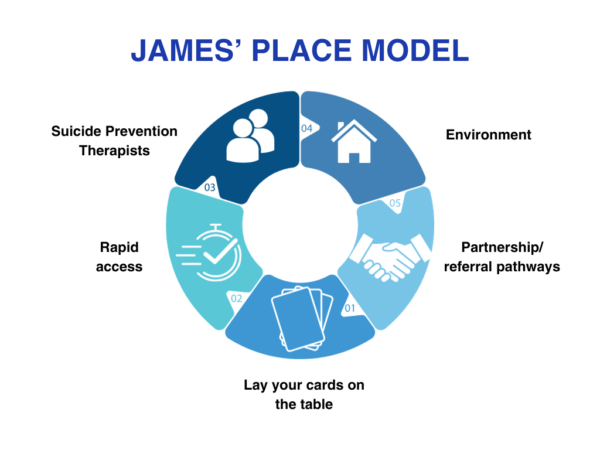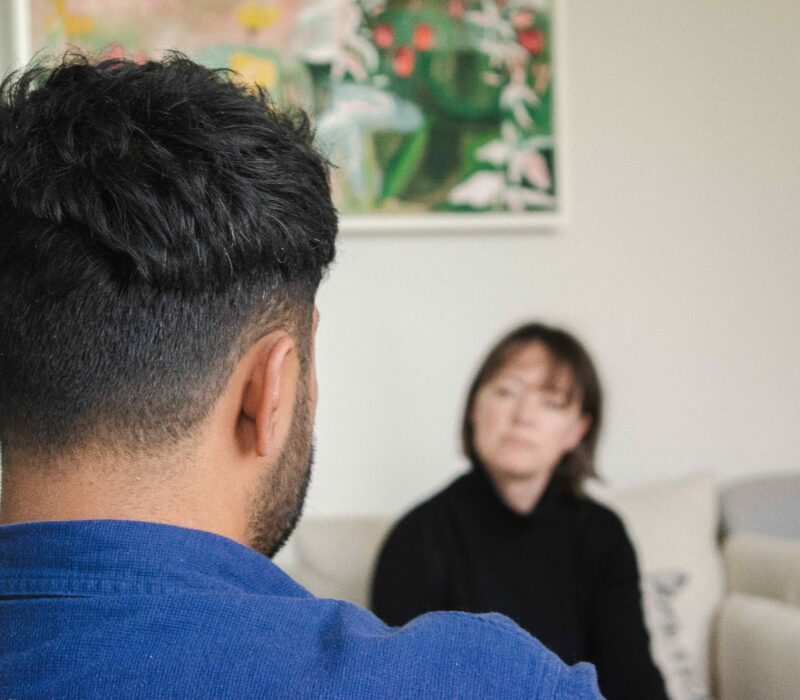Our model of treatment
The James’ Place model consists of five components: environment, suicide prevention therapists, partnerships/referral pathways, rapid access to the service and the innovative ‘Lay your cards on the Table’ intervention, where we use sets of cards to help the men we support talk about how they are feeling and what is going on in their lives throughout their sessions with us.

What makes us different
- Treatment – Our treatment works. Men experience a clinically and statistically significant positive change following treatment and reduced levels of psychological distress.
- Time – We see men quickly with no waiting list.
- People – All our therapists are trained professionals. Men have the same therapist throughout their treatment.
- Place – We deliver treatment in our safe, friendly and non-clinical centres in Liverpool, London and Newcastle.
- Partners – We work alongside the NHS and other local support services, taking on clinical responsibility for the men we treat.
Our evaluation
Our academic and independent evaluation, which was conducted by lead researcher Dr Pooja Saini, Reader in Suicide and Self Harm Prevention at Liverpool John Moores University between August 2018 and July 2022, shows that men who have attended James’ Place on average experienced a clinically and statistically significant positive change in their mental wellbeing following their treatment and reduced levels of psychological distress, as measured by the Core Outcome Model (CORE 10).
Between 2020 and 2022 we also measured entrapment levels in the men we see, which is a key indicator of psychological distress. The research found that on average, men who attended James’ Place had a statistically significant reduction in feelings of entrapment.
Read the latest evaluation here.




